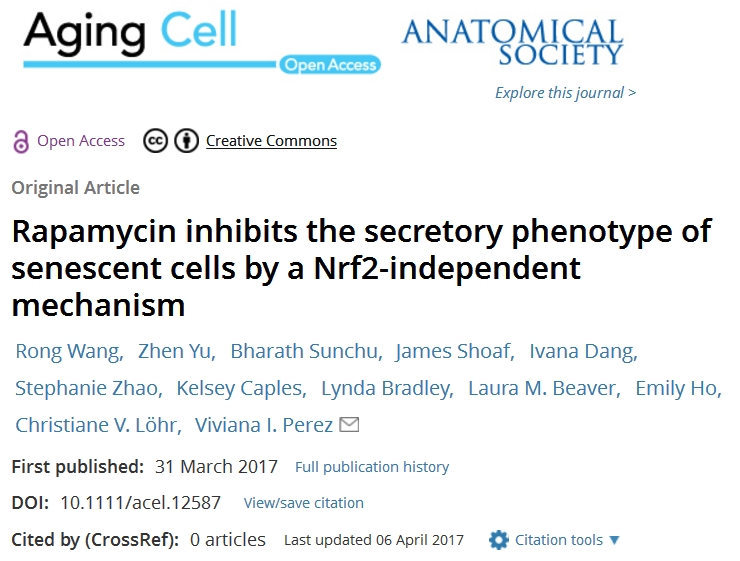Search Product
Structure Search
Search
Advantage Products
Location: Industrial Info
Scientists have found that rapamycin has a new mechanism for anti-aging effects
2017-04-07
来源:转载自第三方
7 April 2017
Researchers from Oregon State University have found that the compound rapamycin has unusual properties that may provide a new treatment for neurological diseases such as Alzheimer's disease. The study was published in the journal Aging Cell entitled "Rapamycin inhibits the secretory phenotype of senescent cells by a Nrf2-independent mechanism".

Rapamycin (RAPA) is a novel macrolide immunosuppressant that was originally purified from soil samples from Easter Island and it had a strong immunosuppressive effect. It is ofen used to reduce immune rejection in organ transplantation. From the clinical point of view, rapamycin has a good anti-rejection effect, and have a good synergistic effect with cyclosporine A (CsA) and FK506 and other immunosuppressive agents.
In this study, the researchers found a new mechanism of rapamycin, which is clearly associated with cell senescence. When the cells reach the aging stage, stop the proliferation, began to secrete the harmful substances that cause inflammation, it will produce the aging-related secretion phenotype or SASP toxic environment, which could damage the cell microenvironment, change the normal function of adjacent cells, damage its organizational structure and function. And rapamycin can block this process. Previously, scientists only observed one mechanism of rapamycin in the process, that is, to increase the role of Nrf2, Nrf2 can "open" up to 200 gene for cell repair, carcinogenic detoxification, protein and lipid metabolism, antioxidant protection and other factors. In the process, it helps to reduce the level of SASP. However, in the new study, the researchers found that rapamycin can also directly affect the level of SASP, and have an impact on neurons and other types of cells.
In animals, when the aging cells are cleared, they have a longer life and less disease, and rapamycin have similar effects. Laboratory mice that have received rapamycin have shown more adaptability, less activity with age, improved cognitive and cardiovascular health, reduced cancer, and prolonged lifespan.
Newly discovered mechanisms may help prevent nerve damage and some related diseases. However, there is a proverb that says you can’t have your cake and eat it too, the current use of rapamycin in humans has side effects, increased insulin resistance may cause diabetes risk. Scientists are looking for rapamycin analogues with similar biological effects but do not cause unnecessary side effects to solve this problem.
Related Links: Rapamycin
Edited by the Editorial Office of Suzhou Yacoo Science Co., Ltd.
如果涉及转载授权,请联系我们。












